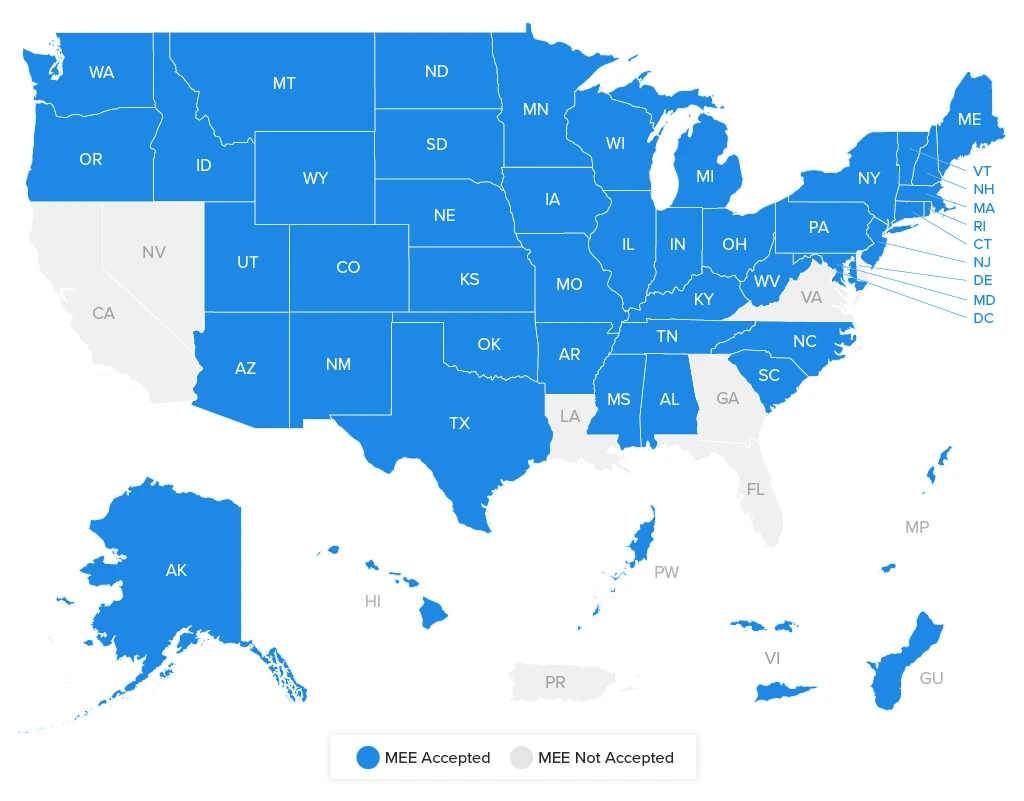The MEE accounts for 30% of the UBE score, equivalent to 120 points on the 400-point scale. The remaining components — the Multistate Bar Examination (MBE®) and the Multistate Performance Test (MPT®) — contribute 50% and 20% of the score, respectively.
The MEE plays a significant role in evaluating readiness for legal practice. Boards of bar examiners rely on MEE scores to assess key skills such as legal writing, issue analysis, and logical reasoning, making it a vital component of your overall bar exam performance.
How is MEE Graded?
The MEE consists of 6 essay questions that assess your ability to analyze legal issues, distinguish relevant from irrelevant information, and apply legal principles effectively. Each is graded on a raw scale of 0 to 6. These scores are then scaled using statistical equating to ensure fairness across exam administrations.
Scoring Breakdown
- Each essay contributes up to 20 of the available 120 points.
- The scores of the written components (MEE: 60%, MPT: 40%) are combined and scaled to align with the MBE, maintaining consistency and comparability.
Examiners’ Role
The NCBE doesn't centrally grade the MEE. However, it does provide detailed materials and hands-on training to facilitate consistent and fair grading across all participating jurisdictions.
Examiners use NCBE-provided rubrics to evaluate essays on the following parameters:
- Identifying key legal issues with accuracy
- Applying relevant legal principles effectively
- Delivering coherent, well-reasoned analysis
- Reaching clear and logical conclusions
Essays must demonstrate a firm grasp of legal principles and be legible and structured to guide the grader through the argument effortlessly.
MEE Passing Score
Each jurisdiction sets its MEE passing threshold between 260 and 280.
- 260: Average score of 3.9 per essay.
- 266: Average score of 4.0 per essay.
- 273: Average score of 4.1 per essay.
- 280: Average score of 4.2 per essay.
MEE Jurisdictions
To determine the jurisdictions that accept the MEE, please refer to the table below:
MEE Score Release
MEE scores aren't released independently. They are usually included with your overall bar exam results — unless your jurisdiction administers the test independently. Your MEE scores will be available in your NCBE account once your jurisdiction releases all of its bar exam results. That typically happens 6-8 weeks after an exam date.
How We Can Help You Master Essay Writing
With the combined resources of UWorld, Themis Bar Review, and Aspen Publishing —- including the comprehensive coverage of MEE subjects —- you’ll have everything you need to prepare for the MEE, MBE, and MPT, and ultimately pass the bar.
Our new smart tool — UGrader™ AI Essay Grader — simulates an examiner’s perspective and provides efficient, high-quality grading that will help you fine-tune your essay writing for the bar. Detailed feedback on all essay components, including identification, rules, analysis, and conclusion, will help you pinpoint strengths and areas for improvement to help you get a top score on each essay. UGrader AI is guided by our expert team of human graders and is constantly being refined and compared to human grading, so you can be assured that your results are reliable, accurate, and reflect the latest MEE requirements.
Frequently Asked Questions
What is a good MEE score?
A good score depends on your jurisdiction’s passing threshold. Generally, an average of 3.9 to 4.2 (out of 6) per essay is considered passing. For jurisdictions requiring a total score of 260, a 3.9 suffices, whereas a 280 threshold demands closer to a 4.2 average.
What is the grading scale for the MEE?
The MEE grading scale ranges from 0 to 6, with 6 being the highest.
Is the MEE curved or scaled?
The MEE is scaled. Raw scores are adjusted to account for variations in exam difficulty, ensuring fairness across different administrations.
How long does it take to receive MEE scores?
MEE scores are part of the overall UBE results, typically released 6-8 weeks after the exam date. You can access them through your NCBE account.




